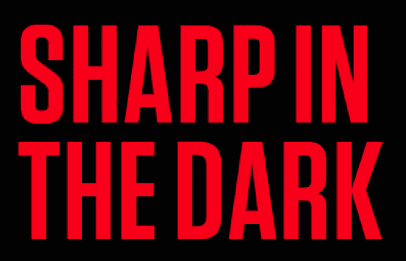Sharp figured that coffee would help her relax. Again, she was wrong. After the unexpected visit from Lee and Minetta, coffee was just making her feel more agitated. Then she remembered the night before, and the face looking up at her from inside the Buick.
A shiver ran down her back. She set down her cup and noticed that her hand was shaking.
I just need to calm down, she thought for the second time that day. She looked around the small coffee shop. It was down the block from her office and never more than half full; Sharp could usually get an empty booth, block out the world and think. But today, she didn’t want to be left to her own thoughts. She spied a folded newspaper on the next table. She grabbed it, pushed her coffee cup aside and spread it open on the table. She looked through the news articles, page by page, hoping one of them would catch her attention. None of them did — until the second-last page. She leaned forward and read:
IVERSON, Claire (1960–84), loving daughter and
sister, passed away unexpectedly on the morning of
October 22, 1984. A private service is scheduled.
Why write anything? Sharp thought, frowning at the restrained tribute. She leaned back and closed her eyes. Iverson. I’ve heard that name somewhere else, somewhere before Claire, she thought. But where?
“Heater?” asked Doris, the waitress, as she stood in front of Sharp, holding a glass coffee pot. Hot, brown liquid sloshed around inside. Doris was a large woman and she wore her uniform a size or two too small — and unbuttoned low in the front, revealing a deep crevasse between her breasts.
Sharp looked up at her. “Sure, thanks,” she said, distractedly, knowing she didn’t really need more. Doris reached across the table and filled Sharp’s empty cup. Her breasts moved closer.
Sharp stared at them, mesmerized.
“Do you mind?” Doris stood up and brushed a hand across her prominent cleavage, as if she were brushing away Sharp’s unseemly gaze.
“I’m sorry . . . I was looking at . . . your cross. It’s . . . very nice.” Sharp stammered as her cheeks reddened. Doris wore a thin chain around her neck with a cross hanging from it. The cross rested on the shadowy gap between her breasts, like a miniature, gold bridge.
“So says you and every Tom, Dick and Harry that darkens the doorway of this joint. I’ll tell you what: I’ll let you off with a warning. How’s that?” Doris turned and walked away, tossing her chin in the air.
“That’s it!” Sharp slapped her forehead.
“Huh?” Doris turned back to her.
“Your cross — it just reminded me of something. Something I was missing.”
“You’re missing it, all right.” Doris chuckled as she walked back to the cash register.
Sharp held her head in her hands. She thought, Claire wore a cross, which means she went to church. But that doesn’t follow; people often wear crosses and never go to church. But she said she did . . .
Sharp closed her eyes and thought of Saturday night. She pictured herself driving north on Sherbourne Street. Claire sat next to her, gazing out the window at the darkened street. A car passed them, travelling in the opposite direction; for a moment, their faces were bathed in light.
“See that church? My family goes there. We’ve been going there for years, since I was born,” Claire said as they glided past a pale, stone building set back from the street.
“Oh yeah?” Sharp looked over at Claire as she stared out into the night. Her blond hair hung loosely around her face.
“I can drive you tomorrow morning, if you like,” Sharp said, smiling.
Claire turned to her and said, “What makes you think you’ll be around in the morning?”
Sharp’s smile vanished. “Well, I . . . just thought . . .” Sharp answered, helplessly.
Claire’s hand landed on Sharp’s thigh. “Just joking. I don’t go to church anymore,” she said, then turned back to the window. “But I still believe.”
A moment later, Claire’s fingers were making soft, slow figure-eight patterns over Sharp’s thigh.
She pressed down hard on the gas pedal.
*
The phone was ringing as Sharp unlocked her office door. She leapt across the room and grabbed the receiver.
“Sharp detective agency,” she said, breathlessly.
“To whom am I speaking?” a woman’s strained voice asked.
“Sidney Sharp. Can I help you?”
“I certainly hope so. It’s Mrs Mintz. I am calling because I was led to believe that you would be telephoning me yesterday with an update on your . . . findings. I received no such call, and, as I am paying you, I thought I had better telephone you myself.”
“Hello, Mrs Mintz. Yes, I am sorry I didn’t get a chance to report back to you. After two days on the case, I am pretty sure your husband is . . . well, having an affair,” Sharp said, pulling at her collar. She hated to be caught off guard.
“You’re sure?” Mrs. Mintz said quietly.
“Well — yes. Somewhat. You see, I trailed him to an address in Parkdale. He spent about three to four hours there on Monday and again on Tuesday. Today, he was at work. I haven’t got any firm proof, but it’s my professional opinion that he’s seeing someone there . . .” Sharp said quickly.
“Goodness, what do you mean by ‘proof’? Dear me, I’m not entirely sure I want to go on with this,” Mrs. Mintz said, suddenly breathless.
“Proof would be a photograph — say, an incriminating photograph. Caught in the act — so to speak. I’m waiting for him to step outside with someone. Or, maybe I’ll go in,” Sharp suggested.
“Go in? What in heaven’s name do you mean by that? Oh, I think I had better call this off,” Mrs Mintz’s voice rose up.
“Look, Mrs Mintz, please don’t be upset. I am handling your case with absolute discretion. Just give me another day, all right? Just one more day.” Sharp needed the case, and the money. “Maybe I’m wrong, after all. Maybe there is no affair. But let me find out for sure.”
There was silence on the other end of the line.
“Well, all right. One more day,” Mrs Mintz said quietly before hanging up.
Sharp did the same. She looked at her watch. Just after five o’clock. She grabbed her jacket and headed for the door.


 Why you can trust Xtra
Why you can trust Xtra


